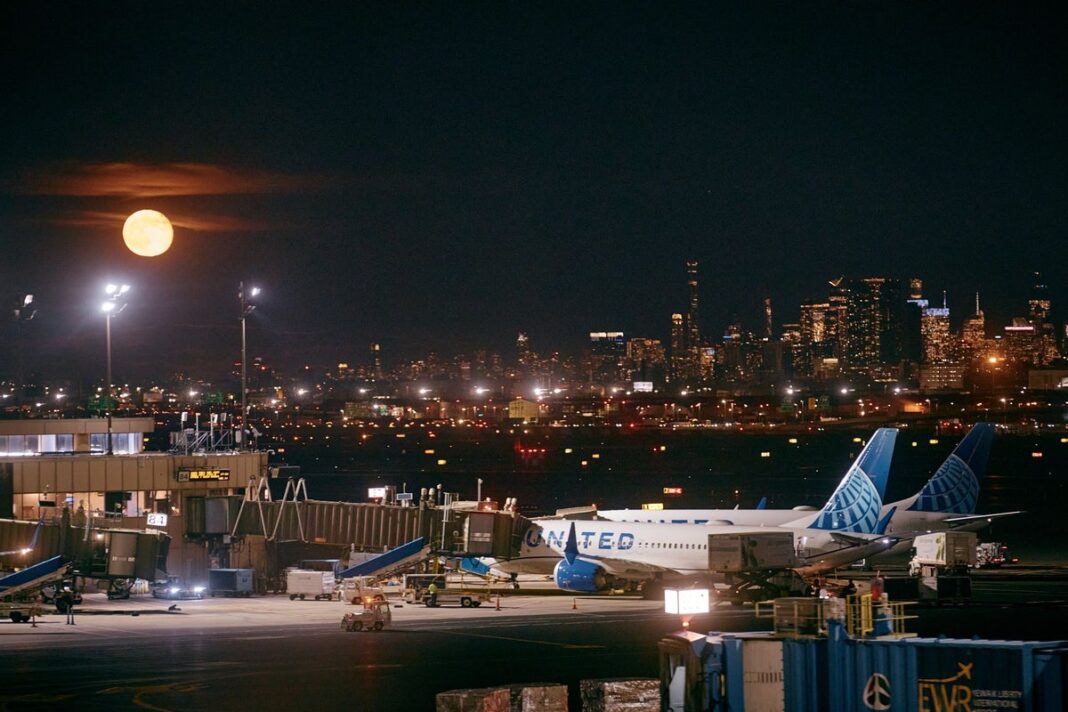The Impact of Flight Cancellations Amid Ongoing Government Shutdown
As the U.S. grapples with a historic government shutdown, travel chaos looms large across the nation’s airports. With major cancellations now affecting flight schedules, travelers find themselves navigating an uncertain sky.
Government Shutdown’s Immediate Fallout
The Federal Aviation Administration (FAA) has begun implementing significant cuts to flight schedules, resulting in the cancellation of over 800 flights as of late Thursday alone. This move is part of a phased reduction, affecting 40 of the country’s busiest airports, including major hubs like New York’s JFK and Los Angeles International.
The timing is particularly troubling as the holiday travel season approaches, with many families planning trips for Thanksgiving and Christmas. Transport Secretary Sean Duffy emphasized that these reductions, amounting to a 10 percent cut in flight operations, were critical for ensuring safe air travel, given the mounting pressures on air traffic controllers during the shutdown.
Airlines Respond to Passenger Concerns
United Airlines has taken proactive measures to mitigate disruptions. In a recent social media post, the airline committed to minimizing changes to long-haul international flights, although it will reduce schedules by 4 percent on Friday, gradually escalating to the FAA’s recommended cuts. Similarly, American Airlines awaits further FAA guidance, while Delta has assured that most flights will run as scheduled, offering greater flexibility for customers to change or cancel their plans without penalties.
Alaska Air, facing unexpected delays, has reassured that international routes should remain unaffected, while disruptions will be limited to domestic flights with high competition.
Traveler Reactions and Preparations
As news of widespread cancellations circulates, passengers are starting to adjust their itineraries. With travel experts estimating hundreds of flights may be affected, including a potential loss of upwards of 268,000 seats, airport terminals are bracing for increased foot traffic as travelers look to secure alternative arrangements.
Many passengers are also voicing their frustrations online, sharing experiences of long wait times and altered travel plans. Enhanced customer service support has become crucial as airlines navigate these unprecedented challenges.
The Broader Economic Implications
Beyond the immediate inconveniences for travelers, the ongoing shutdown has raised alarm over broader economic repercussions. The aviation industry, already hit hard by the pandemic, faces additional strains as air traffic controllers and TSA officers work without pay. Transport Secretary Duffy mentioned that this situation has resulted in staff shortages and heightened stress levels, leading to increased delays.
The economic impact is felt not just by the airlines, but also by local economies that rely on travel and tourism, which could see decreased patronage during peak holiday seasons.
Political Divisions and Responses
The shutdown has amplified political tensions, with accusations flying from both sides of the aisle. Some Republican leaders, including Vice President JD Vance, have attributed the crisis to Democratic inaction, foreseeing significant fallout for families as the impasse prolongs. Meanwhile, Duffy has firmly stated that the FAA’s decision to reduce flight schedules is about public safety, not political leverage.
The longer the shutdown persists, the more travelers can expect to face real consequences, affecting not just air travel but also everyday life scenarios, from work schedules to family gatherings.
Future of Air Travel During Uncertainty
As everyone keeps an eye on ongoing negotiations in Congress, air travel remains under a looming cloud of uncertainty. The persistent challenges underscore the need for immediate solutions in order to restore confidence in air travel and ensure that families can make their holiday plans come to fruition.
As travelers across the nation brace themselves for the upcoming disruptions, the hope remains that a resolution will come swiftly, allowing both the aviation sector and the general public to return to normalcy.



